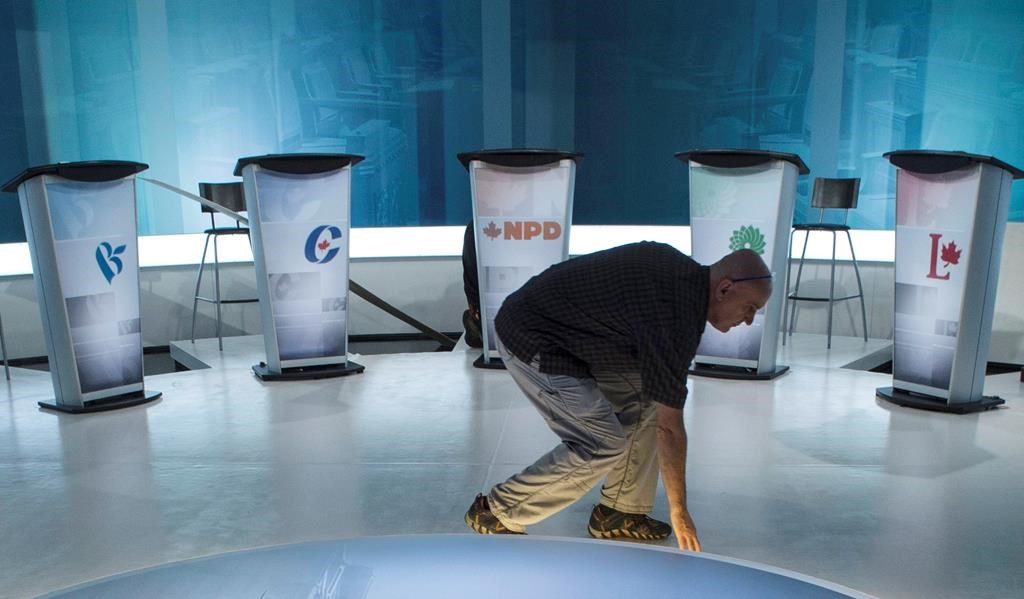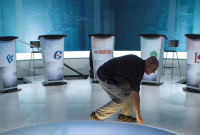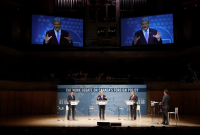Support strong Canadian climate journalism for 2025
The leaders of Canada's five main political parties were invited Monday to take part in this October's televised federal election debates, but the newly formed People's Party of Canada has been left out in the cold.
The Liberals, Conservatives, NDP, Bloc Quebecois and Greens have all qualified for the debates, to be held Oct. 7 and Oct. 10, under criteria established by the federal government.
To participate, the parties had to meet two of three criteria, including having one sitting member elected under the party banner and candidates running in 90 per cent of Canada's electoral ridings in the Oct. 21 election. The third stipulation requires that a party either have earned 4 per cent of the votes cast in the 2015 election, or candidates with a "legitimate chance" to win seats this fall.
Each party was asked to write a letter to the commission to make their case for why they qualified.
The People's Party couldn't meet the first criteria, since it wasn't established until after the 2015 election and its only member, Quebec MP Maxime Bernier, won his seat as a Conservative. It has met the second requirement, the Leaders' Debates Commission acknowledged.
However, it does not currently have a "legitimate chance of electing more than one candidate in the next federal election," debates commissioner and former governor general David Johnston said in a statement.
The party promptly disagreed, noting in a response that in the current political climate, a populist party has "an excellent chance of rapid growth and electing candidates."
"Canadians have the right to hear views that differ from those of established parties," Bernier said.
Calling Monday's decision a "preliminary assessment," the commission said it would give the party until Sept. 9 to further make its case. The commission will make a final decision by Sept. 16.
"As we moved forward, we didn't believe we had enough evidence to make a decision, that it would have been unfair to Mr. Bernier to call the shot in early August," Michel Cormier, executive director of the commission, said Monday in an interview.
Giving the party more time will allow a snapshot of the party's prospects as close to the election as possible, while still allowing time to organize the debate properly, Cormier said.
In determining whether the candidates had a "legitimate chance," the commission considered a variety of sources of information, including evidence from the parties, national and riding-level polls, past candidate performance, membership, fundraising and media visibility, he added.
There is no specific threshold for poll numbers, for example, that would have constituted a legitimate chance of election, Cormier acknowledged, calling the determination a "difficult question."






Comments